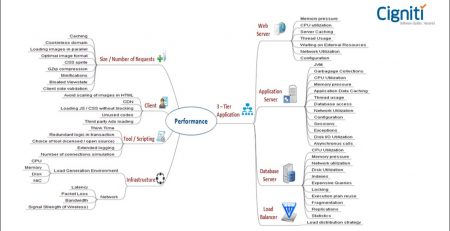Overcome your challenges of Retail Software Testing with Performance Engineering
COVID-19 and digitalization have had a widespread impact on businesses across every sector of the economy. The retail industry too, segmented by Products and Distribution Channels, has been witnessing dramatic changes in the past year. Organizations need to provide the best retail experience to their customers across channels, whether Industrial and Automotive, Electronic and Household Appliances, Pharmaceuticals, or via the Hypermarkets and Specialty Stores.
However, with customers preference shifting towards online shopping during the pandemic days as they didn’t want to venture outside, and rather buying merchandise from the safety and comfort of their homes, online retail has seen a sharp growth.
Per a report, “The U.S. Commerce Department figures show online retail sales are growing at an annual clip of 10 to 15 percent. Consumers want reliable information, an efficient process, and guaranteed satisfaction if the item purchased online does not meet expectation. As long as those expectations are satisfied, online consumption of other goods and services in the economy – be it groceries, prepared meals, medicine, personal or business services, and the like – will continue to expand.”
No wonder investments in retail management software have been growing by leaps and bounds!
A software suite is meant to deliver a seamless and stable omnichannel experience to buyers at the front-end while processing large transactions at the back-end. A retail management software may comprise CRM apps, Point of Sale systems (POS), data warehousing systems, e-commerce portal, and a supply chain management system, among others. However, to stay competitive and profitable, every retail store or conglomerate having an online arm should ensure that its software is giving the best performance and there are no hiccups in the functionality of their apps. Testing the software for retail management therefore is an important requirement to address common performance-related challenges and provide assured experience to customers.
Common challenges faced by retailers
Any e-commerce application may face a slew of challenges such as:
- Performance issues creating a negative customer experience and impacting brand loyalty
- A sudden rush of traffic, especially during festivals, Black Friday sales, etc. can create an immense load on the system
- Security issues plaguing transactions can dissuade customers from using the application
- Any delay in payment processing can force customers to abandon the app
- Any delay in app loading can affect the customer experience
- Any complex navigation can impact the usability of the app
Addressing performance-related challenges of a retail software
Establishing a performance first culture and an access to proactive & on-demand performance engineering, cloud-enabled labs for testing Compatibility, Mobile, & Security and performance testing services for the software and applications can help identify the inherent glitches in the software and ensure seamless performance for the customer across channels. This will eventually lead to improved UX, sales, & profitability.
By implementing a robust retail testing strategy, quality performance engineering practices, and end-to-end software testing services, retailers can resolve the myriad challenges associated with any retail management software in terms of scalability, security, integration, customization, and usability, thereby providing the best experience. This makes testing all the areas a critical requirement.
- Security testing: Arguably the biggest scare of all, cybercrime is real and damaging. It is only by adopting a robust security testing strategy that any inherent security-related vulnerability can be identified and fixed during the development phase. Further, when retail management software deals with payment gateways, bank accounts, and digital wallets, security testing should be an integral part of the whole retail testing exercise.
- Usability testing: This can encompass many strands such as compatibility of the software across device platforms, browsers, networks, and operating systems. Besides, from the outside, the software might look robust, secure, performing, seamless, and quick-loading, its real worth can only be judged when various features, links, and functionalities are tested threadbare for their intended outcomes. The navigation can be a pain area for users, and so, every link and field should work fine with the overall workflow being intuitive, structured, and responsive.
- Scalability testing: The retail management software must be tested for specific load thresholds to ensure it does not malfunction, suffer from latency, or generate inaccurate results. By performing appropriate retail software testing, testers can determine the appropriate load threshold the software can handle, especially during situations like Black Friday, Christmas, or New Year when the traffic is expected to be higher than normal. The retail testing exercise ensures the software can be scaled up or down depending on the traffic, thereby saving cost and delivering superior user experiences.
- Integration testing: A retail management software is connected to several third-party software or components to process requirements related to inventory, supply chain, vendors, customer queries, and payments. The APIs of such third-party software should be tested to ensure they are properly integrated with the primary retail software suite. It is only by leveraging quality assurance services for retail that these integrations are validated to perform at their optimal levels.
- Customization testing: The retail management software should be customized according to the requirement of the specific retail store. The fields, features, and functionalities should follow the workflow of the retail store to help customers identify the brand and embrace its value proposition. Retail application testing can verify if the customizable dashboards can generate reports and deliver exact data in real–time.
Conclusion
Retail management software is critical to keep the e-commerce flag flying and deliver the best customer experiences. However, validating its performance and expected outcomes requires the software to be subjected to retail software testing. It may involve leveraging the QA automation services to test if various features of the software work as expected and the customers receive an omnichannel experience.
Cigniti’s compelling retail solutions enable businesses to align better with their end-user needs. From Food to Fashion to Ecommerce, we have worked with top players in the industry on Digital Quality Engineering for Retail Industry. Our comprehensive service span across the entire retail & digital commerce ecosystem. Leveraging a Retail and Digital Test Center of Excellence (TCoE) and Domain Competency Group (DCG), Cigniti has created ready-to-use Enterprise Test Accelerators and solutions across different platforms in the retail domain. These accelerators act as enablers and reduce testing efforts by over 70%.
Cigniti’s experience in Retail Testing has enabled multi-channel retailers transform their businesses through a quality-optimized, results-driven strategy, leveraging an unbiased quality engineering approach, customized retail testing frameworks & solutions, and a strong domain expertise.
Our end-to-end testing processes for retail industry assist individual & large chain retailers in assuring quality across their enterprise apps & support their initiatives of enterprise re-platform/upgrade/migration/set-up of complex integration between latest CRM, OMS, WMS, Cloud, Mobile, & Web apps.
Schedule a discussion to connect with our experts and know more.





Leave a Reply